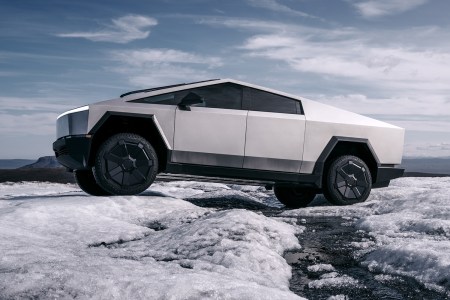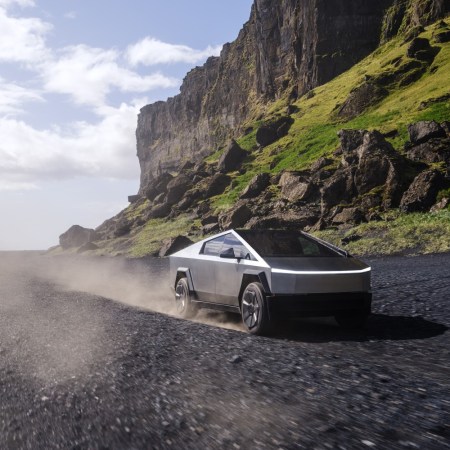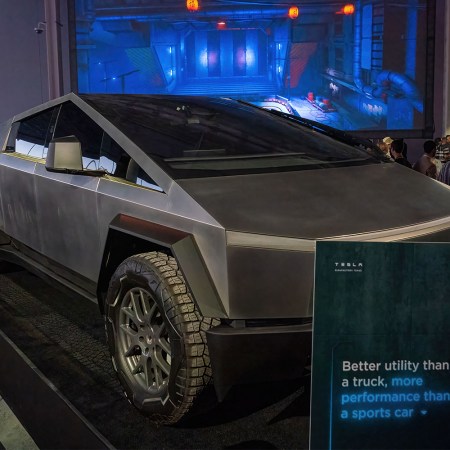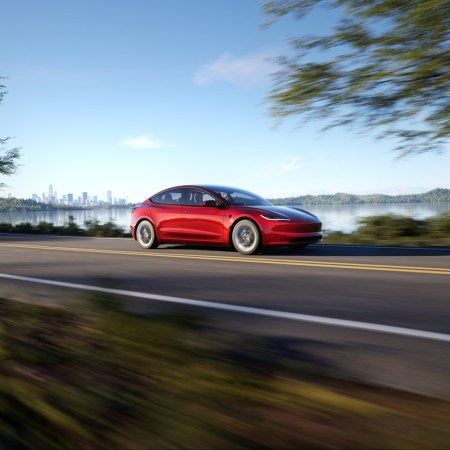For longtime enthusiasts of Tesla, Thursday night’s event showed off a number of promising developments for the automaker and technology company. First and foremost, an actual prototype of Tesla’s long-promised self-driving vehicle, known as both the Cybercab and the Robotaxi. Second, a larger autonomous vehicle, the Robovan, which answers the question, “What if a passenger van was also a steampunk locomotive?” Throw some actual robots — not a person in a leotard this time out — and you have the makings of a splashy event.
How many of the ambitious products heralded there will make it to the public as promised? As Road & Track‘s Stephen Rivers reported, Elon Musk has said that the Cybercab will sell for less than $30,000. The price tag isn’t the only distinctive thing about it; this vehicle is currently designed to charge entirely via an inductive system. But if previous Tesla announcements are any indication, you may want a grain of salt or two to accompany them.
The case of the Cybertruck, now causing drivers all over the country to wonder if they’re hallucinating large pixels on the nation’s roads, may be instructive here. Late last year, InsideHook’s Alex Lauer pointed out that, between the announcement of the Cybertruck and the final production version, only two of the seven features Tesla touted in 2019 were actually in place. Since then, the automaker also seems to have nixed plans for a less expensive rear-wheel-drive version of the truck.
It’s also worth pointing out that the stakes are even higher for the Cybercab: the model revealed this week had neither pedals nor steering wheel. This isn’t a case where, if the self-driving features don’t work as advertised, you’ll still have an inexpensive EV to take around town.
Cybertruck Scorecard: Does Tesla’s Truck Live Up to Elon Musk’s Promises?
Grading the electric pickup, which began deliveries Thursday, based on the original claims from 2019As for what it’s like to travel via Cybercab, MotorTrend‘s Alex Leanse shared some thoughts from the launch event. Leanse described the experience of traveling using “unfinished software controlling a prototype vehicle that apparently contains no hardware for emergency human intervention” — but left the experience feeling “equally curious and skeptical” about Tesla’s plans.
According to Road & Track, Musk has said that Tesla hopes to have the Cybercab in production by 2026. It’s worth keeping an eye on the automaker, both to see if it hits that target date and to compare what drivers get from the finished Cybercab and what they were promised.
This article appeared in an InsideHook newsletter. Sign up for free to get more on travel, wellness, style, drinking, and culture.



















